Until I started college never in my wildest dreams would I see myself at nineteen being a leader in Disability Justice Activism on a college campus, creating a coalition to push for a Disability Cultural Center, serving as a community builder in a queer living-learning community, or being an openly trans athlete.
I came of age in a small private school in rural New Hampshire. When you look at Philips Exeter Academy’s website, they claim a lot of lofty goals for their students such as “knowledge and goodness” and instilling students with the value of lifelong generosity through the motto “non sibi,” translating from Latin to “not for one’s self.” It isn’t written that the school turns students into disability justice activists, or queer community builders, but attending a school that was not built for a transgender, disabled student made me realize activism is the only way I will survive in academia.
Unchallenged Assumptions
Throughout middle school, I was an oddity to most of my teachers and peers. I was a student with an optic nerve disorder and a hearing loss. I was illiterate until the second grade, but by the time I reached middle school, I was excelling in my classes. This was in part due to my mom’s fervent belief that placing me on an IEP plan or noting to teachers in any way that I was disabled would cause them to discount my abilities. That is a belief I am conflicted about but am sure if put to the test would have held true at least some of the time with the widespread ableism of the early 2000s and 2010s.
I also found my way around being labeled. I remember my peers noticing I was reading fiction books they had read a year or two prior, so I switched to exclusively reading nonfiction to hide my reading deficits. I crafted myself into a medically abnormal student instead of a disabled student. While being in non-accommodating classrooms protected me from institutional ableism, it also stripped me of a community and the ability to claim my disabled identity. In turn, internalized ableism festered.
People are now shocked that I didn’t first identify as disabled until I was nearly 16. My understanding of disability was seeing the students in my non-accommodating class talk about their involvement with Best Buddies or other organizations aimed at getting able-bodied and able-minded kids to socialize with their disabled peers. I always felt alienated when students talked about these programs because many spoke of our peers like charity cases. I learned quickly that I needed to erase any sense of disability from myself to pass as abled, to be seen by them as a person.
While the development of my trans identity was more subtle, I reached a similar conclusion. After a trans girl who was two years younger than me came out and was mercilessly bullied, I knew that as much as my friends labeled me an “honorary boy,” it would be a dangerous step to claim my identity as anything more than a tomboy. While growing up being labeled as a girl led me to face misogyny, this same misogyny which makes it socially acceptable for young girls to exhibit what are deemed as boyish interests gave me a space to hide as a young trans man.
Dropping the Act
In middle school, however, I couldn’t hide. My peers and I began puberty, and suddenly it was becoming odd that with my physical changes, I wasn’t forming an interest in wearing makeup or skirts. I realized people were expecting this of me, so I started seeing my wardrobe less as what I was comfortable in and more as a costume closet. I incessantly watched YouTube videos and read information about female puberty, because in my mind, if my body was beginning to change in ways that made me uncomfortable, I wanted to be armed with a war chest of information on how to handle it.
This all culminated in September 2017 when I entered Phillips Exeter Academy. Exeter is a highly selective-by-application private high school, with a 10% acceptance rate (even lower for students like myself at the time who needed financial aid). I thought I was entering a school that had the best students from their middle schools, a school that by definition was built by and for the oddball nerds like me. I thought I could finally drop the act. I was so convinced of this that my last day of eighth grade felt like the curtain call at the end of a musical. I was ready to stop putting myself in a role that my body was increasingly not able to perform.
Yet, I did not know the power of old institutions. Until 2016 Phillips Exeter Academy formally had in its student handbook that it did not think Exeter was the best fit for students with disabilities due to their unwillingness to make simple administrative changes to allow for academic accommodations. In the deed of gift the founders of Phillips Exeter Academy, Elizabeth and John Phillips, state that Phillips Exeter is meant to be a school for “youth from every quarter.” Yet with the most recent data from the CDC claiming that 26% of American adults are disabled, Phillips Exeter Academy is meant for only three-quarters of the population.
I Am Me
I came to quickly know that even on a campus full of nerds, I was still one of the few students who outwardly called myself trans and disabled. And I understand why between debating science teachers about the fact that their biology degrees hadn’t taught them about my disabilities didn’t mean my conditions don’t exist, to having students wait outside my accommodated testing spaces to ask me if I was faking my disability to get into college, to having the faculty head of my dorm tell us that we needed to ask our friends about their genitalia to determine whether we were allowed to have them in our rooms, to having a school nurse while helping me administer my HRT shot repeatedly calling me “Emma” and using she/her pronouns when referring to me.
I had multiple adults tell me it would be easier if I just waited till college to get accommodations in the classroom and be open about my gender identity, but I had already hidden for too long and frankly did not have the energy required to falsely present as an abled, cis female anymore. Left with the choice between facing transphobia and ableism but pretending I wasn’t, or making it everyone’s problem, I chose the latter. I got tried by fire advocating for disabled and trans students in an institution that valued itself on creating Ivy League graduates and Wall Street professionals.
I don’t think I ever made the conscious choice of becoming an activist. It just all got to a point where I felt like I couldn’t exist at this institution knowing that if I silently went through, then another student after me would face the same harm. I scraped together enough students to form the Exonians with Disabilities Association (EDA) and met with any teacher or administrator who would give me their email or 30 minutes of their time. I got told by our campus learning specialist that he thought “disabled students don’t need community.” I finally got the school to extend the five-minute passing period on our multi-building campus to 15 just for them to announce they were changing it back the week after I graduated.
I Can Exist Here
I find it odd now when people come up to me and tell me I am “brave,” “outspoken,” or “doing such good work” because I was doing that work in high school yet instead of being “brave,” or “outspoken,” the work I was doing was seen as “unnecessary” or “destructive to institutional prestige.” I remember the only openly identifying disabled teacher—Mrs. LaPointe, a cis female health teacher who continues to try to improve how she teaches gender-inclusive sex education—took me and my then-partner out to barbeque during my final week of senior year. Mrs. LaPointe reassured me that college couldn’t be worse than high school because at least they had to follow the Americans with Disabilities Act. And Mrs. LaPointe was right.
While UW-Madison is a university built on stolen Ho-Chunk land, exists in the system of academia that privileges knowledge and ways of knowing that have been cultivated by cis, straight, white, abled men—and has actively and recently perpetuated harm against marginalized students—I can exist in this system because I have a community, a community that helps me find resources and professors who will allow me to exist in their classroom. I can say in class that I am trans and disabled. My outspokenness comea from a place of a 16-year-old who knew they needed to be himself.

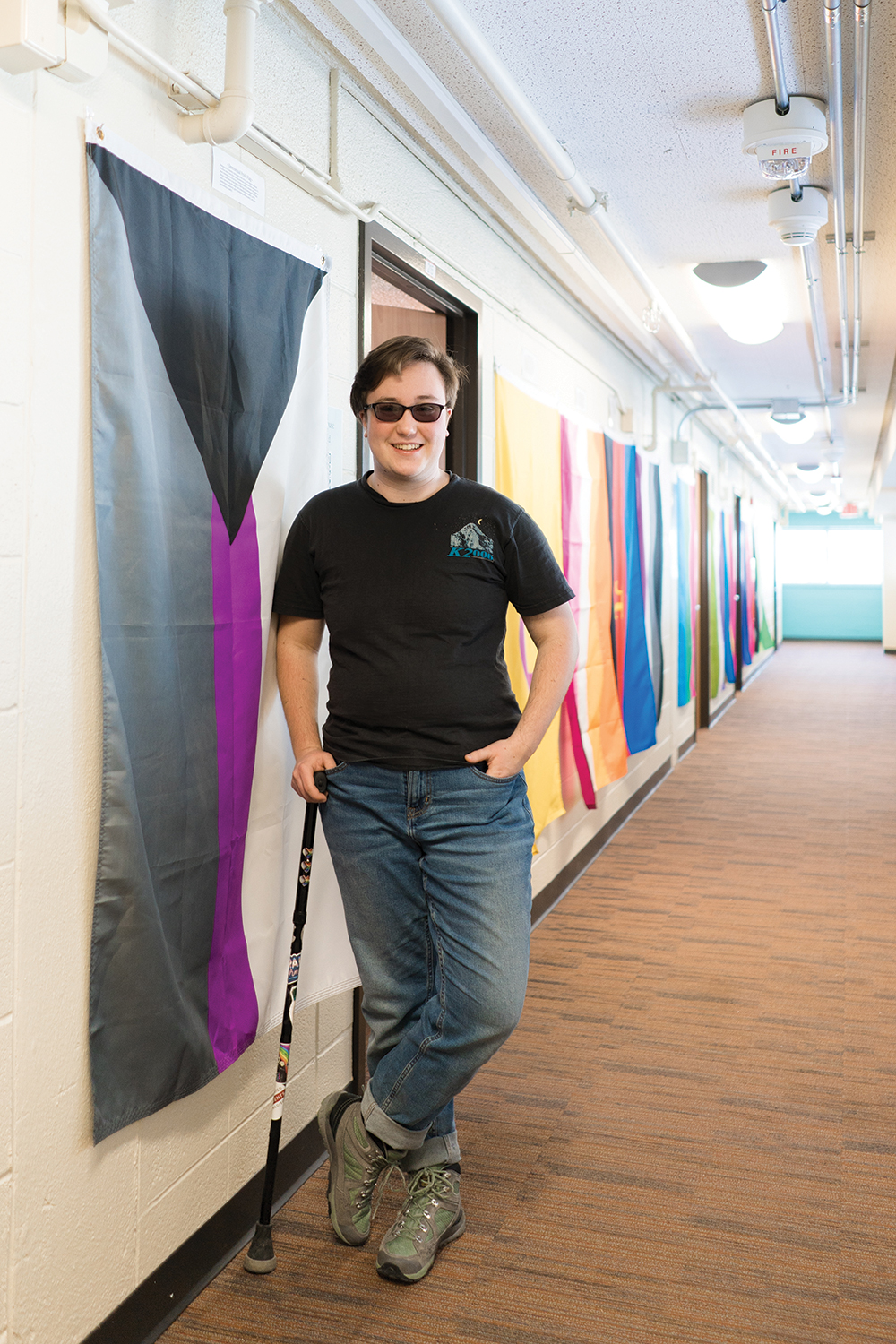
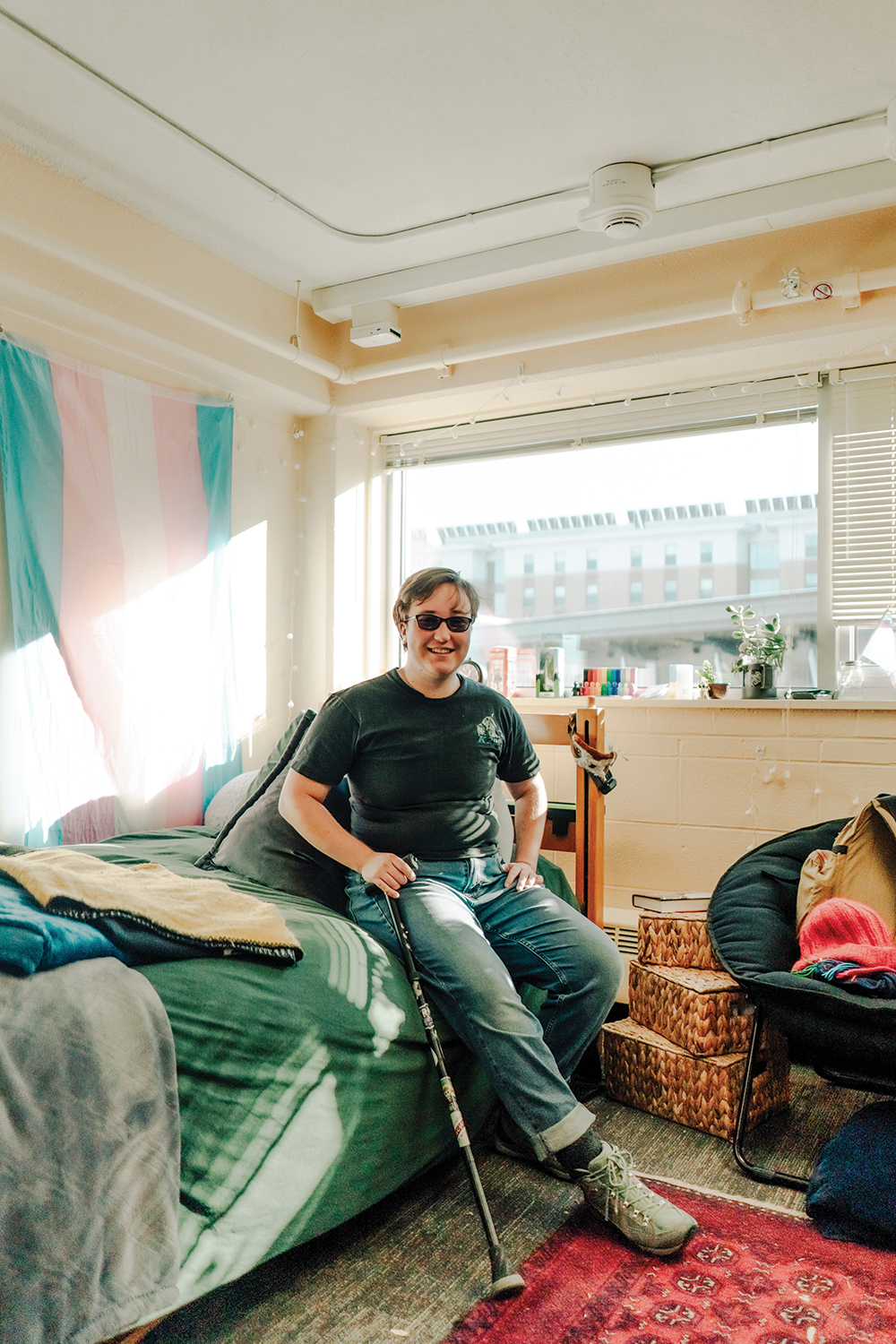



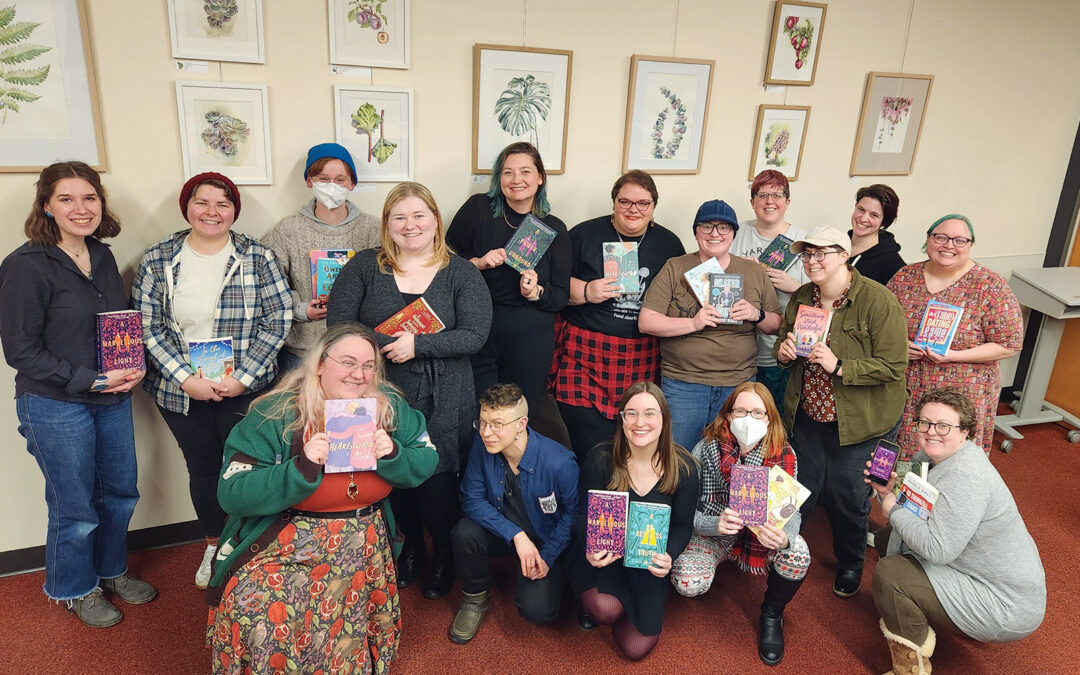
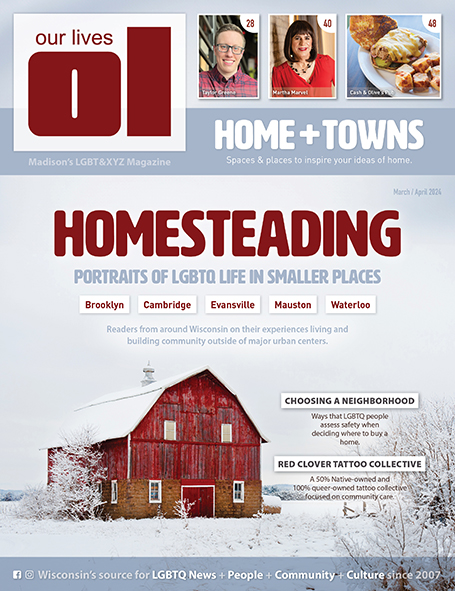
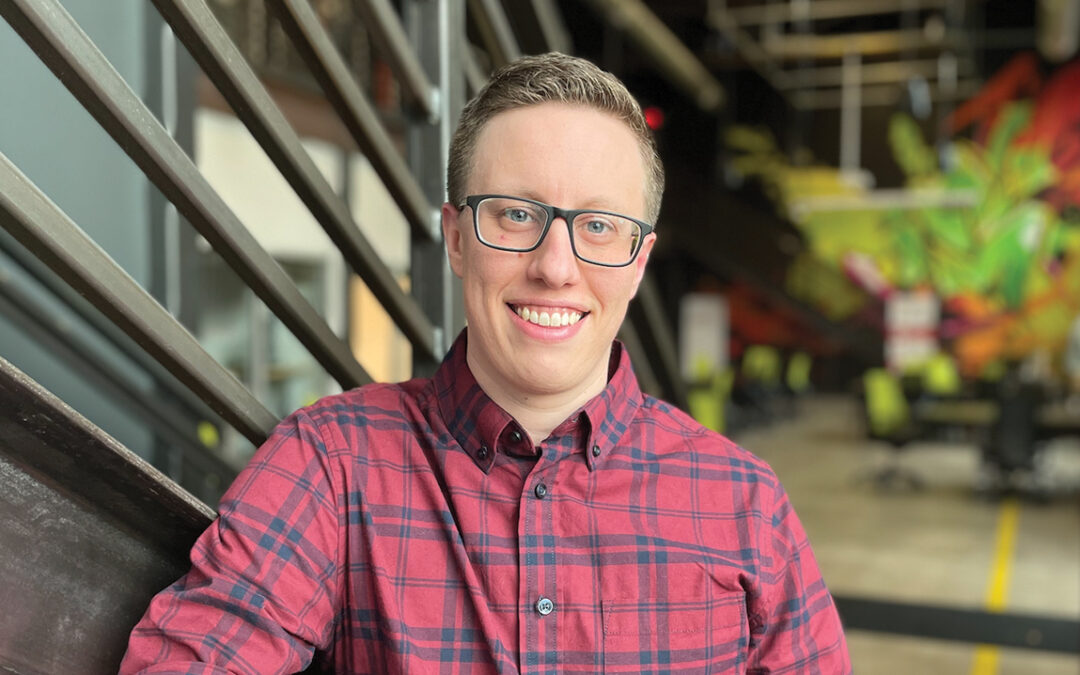
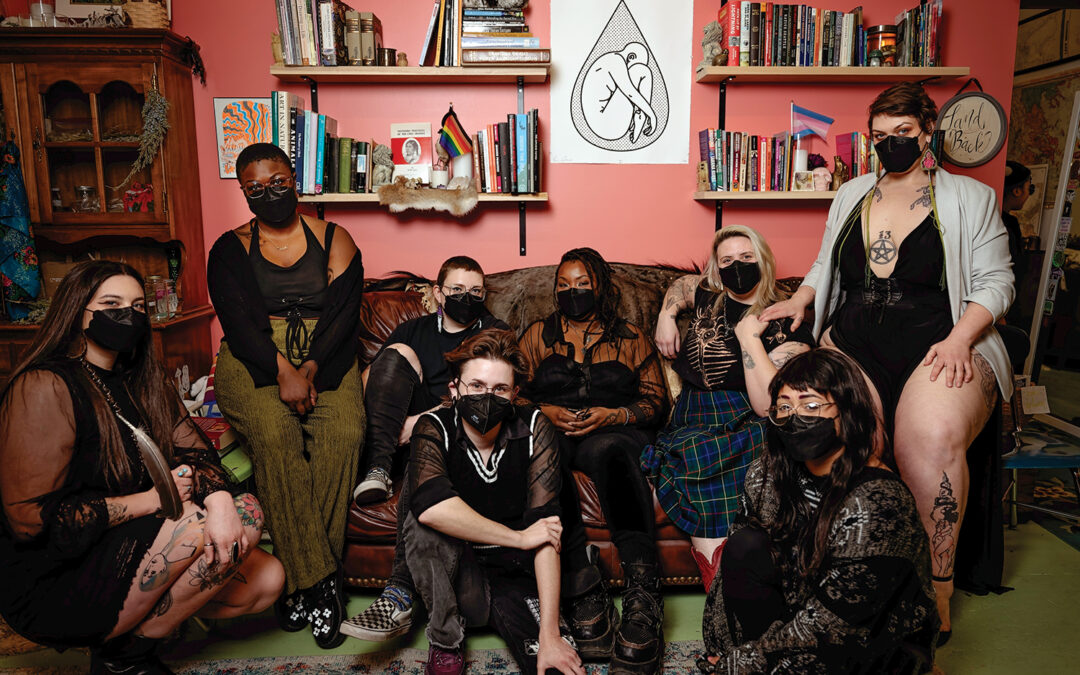
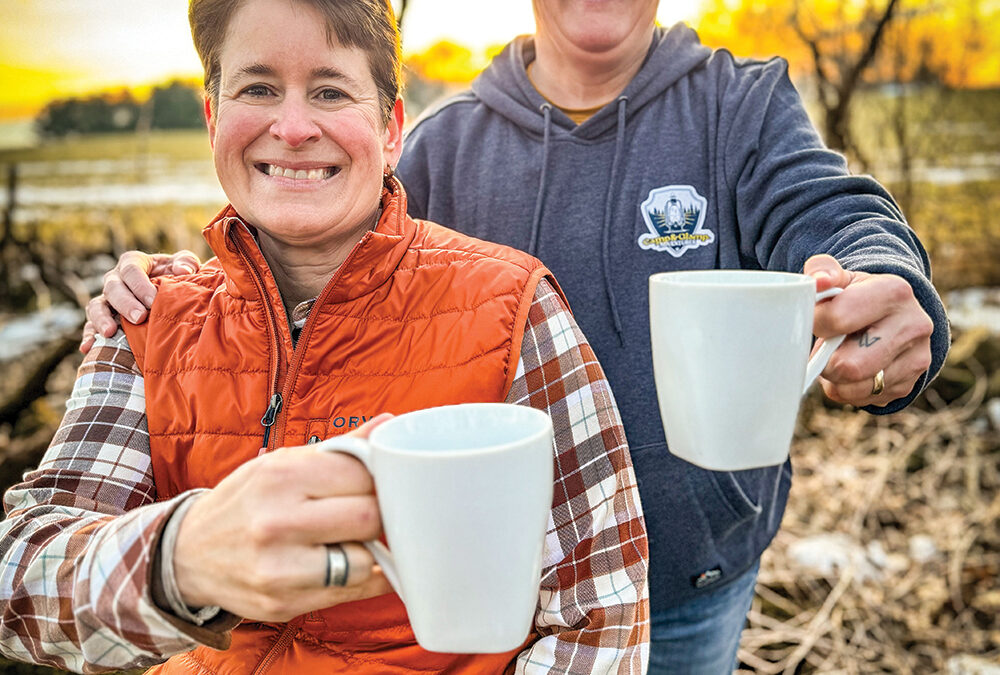
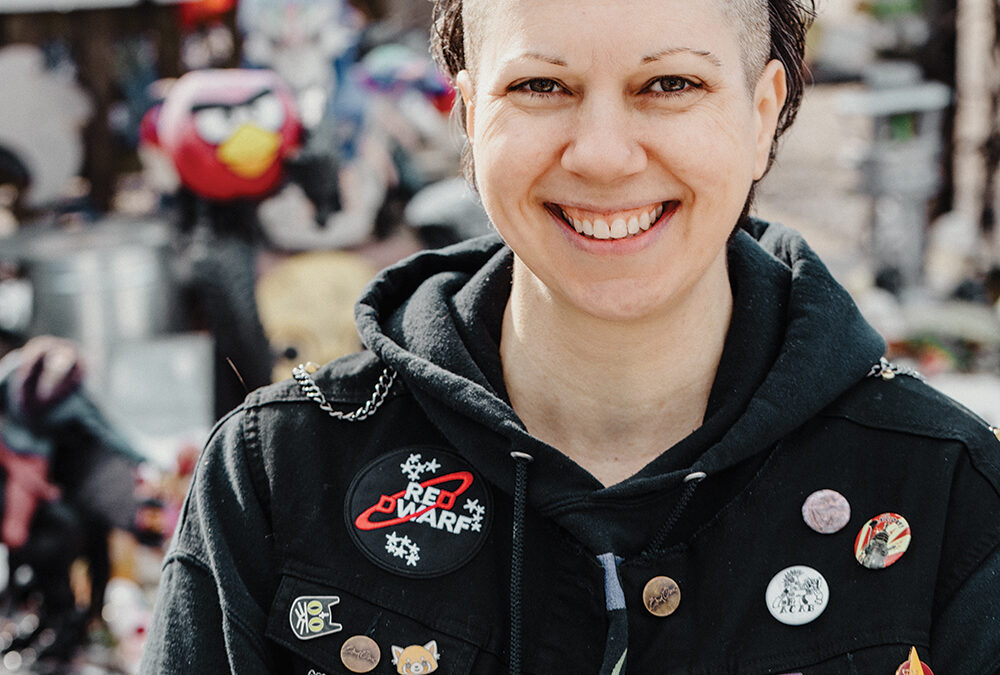
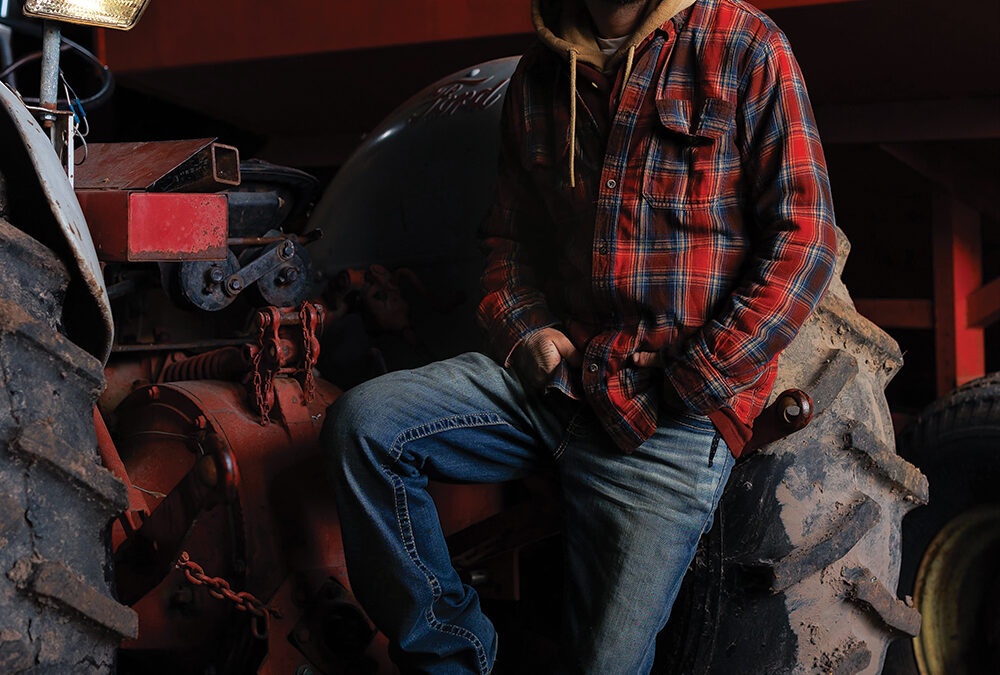
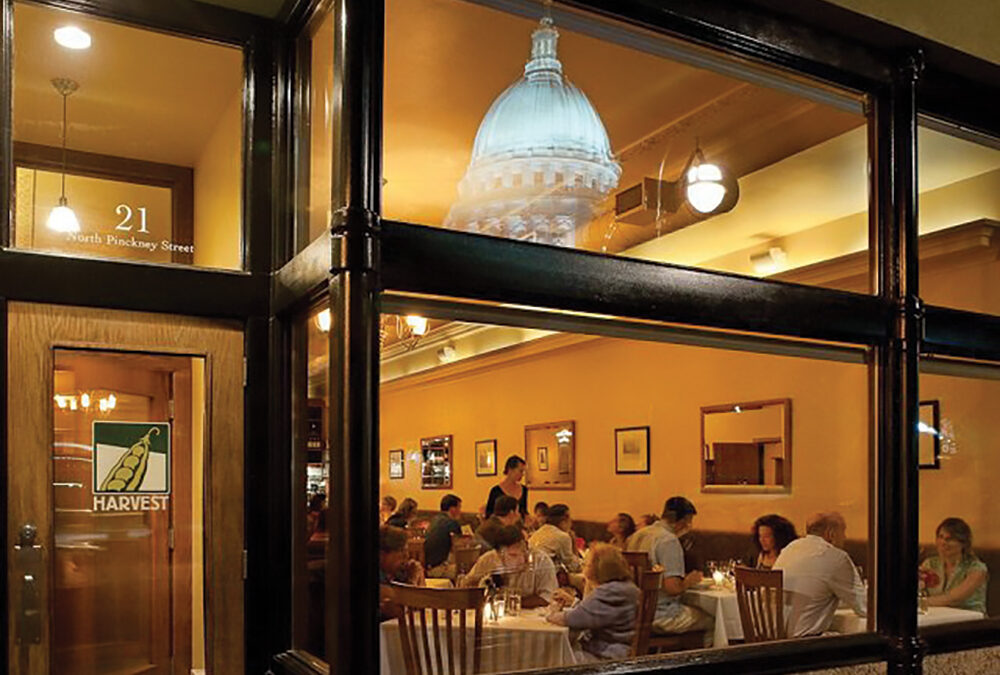
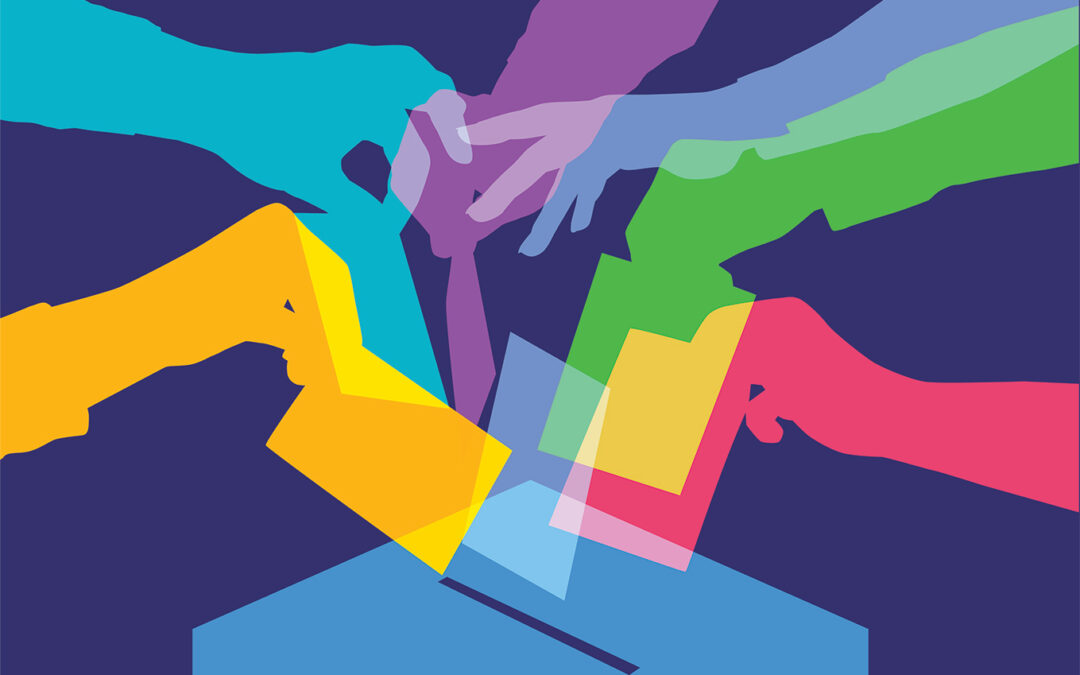
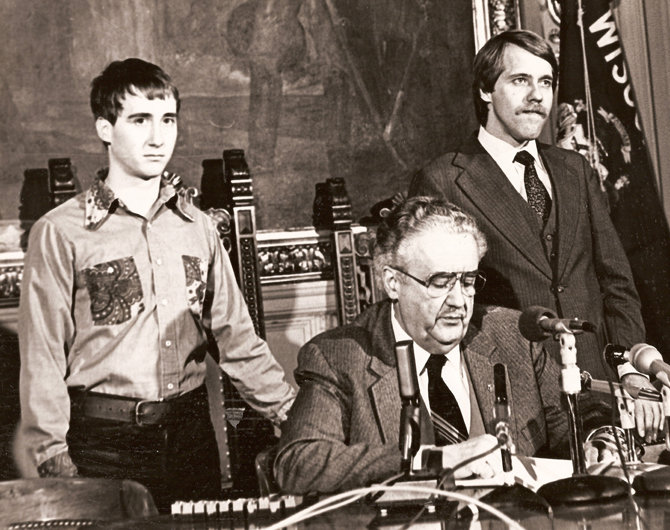









0 Comments